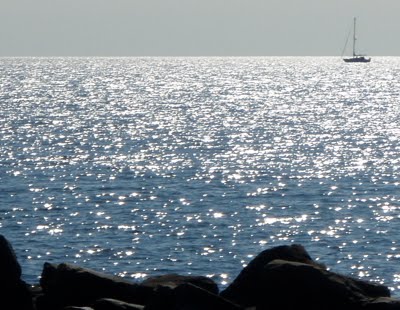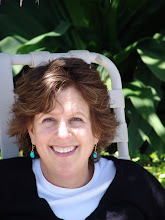Bangladesh and India: Beyond Caste and Poverty
January 10 - 25, 2010
January 10: Sunday. Depart JFK on Emirates Airlines flying through Dubai to Dhaka.
January 11: Monday. Dhaka. Evening arrival in Dhaka. Enjoy a welcome reception. Accommodations: Dhaka Westin Hotel
(reception)
January 12: Tuesday. Dhaka. In the morning, we meet with model, fashion designer, and textile and jewelry designer, Bibi Russell. Having modeled for many wellknown names including Vogue, she returned to Bangladesh and began working with weavers and artisans in rural Bangladesh. “Textiles,” she says, “are part of the history of Bangladesh.” Bibi Productions has received numerous awards including Woman of the Year from Elle Magazine. Asia Magazine recently highlighted her as one of the women to watch in the millennium.
January 13: Wednesday. Dhaka. Enjoy a morning briefing by Dr. Hoon Eng Khoo (Smith ’73) of the new Asian University for Women located in Chittagong. This private university aims to educate underprivileged women to become regional leaders. The university is the first of its kind: a private, regional institution of the highest quality, dedicated solely to women’s education and leadership development. We have requested a meeting with former Prime Minster Khaleda Zia, leader of the Bangladesh National Party (BNP) and currently the main opposition leader. Bangladesh has had the distinction of having two females leading national politics. Enjoy lunch with Sultana Kamal, a lawyer and an activist who has challenged the use of Islamic fundamentalist decrees known as fatwas, issued by village religious leaders in Bangladesh against women accused of “misbehaving.” Sultana Kamal is currently the director of the Aino Salish Kendra, a legal aid and human rights organization. She is also a member of the Unity for Social Action, and she coordinates the Women and Law Program for Women Living Under Muslim Laws. Close by is the National Assembly, designed by renowned architect Louis Kahn. We have arranged a private tour of the interior of the building, considered one of his finest works. We end the day with a briefing at the headquarters of Grameen Bank. The bank and its founder, Muhammad Yunus, jointly won the Nobel Peace Price in 2006 for their successful application of the concept of micro-credit (the extension of small loans to entrepreneurs too poor to qualify for traditional bank loans). We will have dinner this evening in a private home.
Accommodations: Dhaka Westin Hotel (B, L, D)
January 14: Thursday. Dhaka. In the morning, we have requested a meeting with Sheikh Hasina, current Prime Minster of Bangladesh whose BNP party won a landslide victory in December 2008 and now controls 76% of parliament seats. Lunch meeting with Selina Hossain, director of the Bangla Academy of Dhaka. One of the foremost writers of Bengali fiction today, she is also active in cultural and social work in the areas of human rights and gender issues. Her writing presents moving accounts of contemporary social and political crises. She has edited two books on the socio-economic issues for children under the auspices of the UNICEF and co-edited a collection of essays on the emancipation of Bangladeshi women.In the afternoon, we will drive out of Dhaka to Kashipur village, where the local inhabitants’ lives have been changed as a result of small loans given by the Grameen Bank. We will walk through the village, where water buffalo wander down dirt paths alongside women talking Bengali into cell phones they have bought with small loans. Afterward, we have a late afternoon briefing and reception with U.S. Ambassador James Moriarty. Dinner at a private home.
Accommodations: Dhaka Westin Hotel (B, L, D)
January 15: Friday. Kolkata. Morning flight to Kolkata. A mere village in the 17th century,
today Calcutta (now Kolkata) is one of the largest cities in the world. This bustling city is a veritable microcosm of India. Enjoy an orientation tour this morning. We have arranged a special lunch today with the Maharani of Burdwan, daughter of the Maharaja of Faridkota and now married to the Maharaja of Burdwan.
After lunch, we will spend the morning at Mother Teresa’s Missionaries of Charity. The Missionaries of Charity run 19 homes in Kolkata, including homes for women, orphaned children, and those dying; an AIDS hospital; a school for street children; and a leper colony. These services are provided to people regardless of their religion or social caste. We have requested a meeting with Sister Nirmala, who succeeded Mother Teresa as Superior General of the Missionaries of Charity in March 1997. She is a modest woman, and when she succeeded Mother Teresa, she quietly said, “Mother Teresa can never be replaced. She is gifted with a rare compassion and charisma.” This evening, we will enjoy a hands-on cooking class—a chance to prepare and then sample delicious Indian cuisine.
Accommodations: Oberoi Grand (B, L, D)
January 16: Saturday. Mumbai. Morning flight to Mumbai. From obscure, humble beginnings, Mumbai is now India’s most important financial and industrial center. We will enjoy an orientation tour on the way to the hotel stopping at the Gandhi Museum and Research Institute. The group will be met by Dr. Usha Thakkar who will talk about Gandhi’s life and his dynamic and powerful uncharted path of non-violent resistance to foreign rule and to all evil. After lunch, we will take an hour’s boat ride to the tranquil forested island of Elephanta, one of the most atmospheric places in Mumbai. The chief attraction of the island is its unique cave temple with fine examples of Hindu architecture. Here, we will meet with Tasneem
Zakaria Mehta, an art historian who prepared a comprehensive development plan for the World Heritage Site of Elephanta and helped establish the site’s museum. She has also been involved in the architectural preservation of major museums and sites in Mumbai.
Evening reception at a private home. Accommodations: Taj Mahal Palace & Tower (B, L, D)
January 17: Sunday. Mumbai. This morning, we will visit Dharavi, routinely called the “largest slum in Asia.” and recently featured in the award winning movie Slumdog Millionaire It remains unique among slums—a neighborhood smack in the heart of Mumbai, the center of all things, geographically, psychologically, and spiritually. Accompanying us will be Kalpana Sharma, a columnist, media consultant, and independent journalist who has written on urban issues, especially in the context of Mumbai's development. Sharma is the author of Rediscovering Dharavi: Stories from Asia’s Largest Slum, and she edited Whose News? The Media and Women's Issues and Terror Counter-Terror: Women Speak Out with Ammu Joseph. After lunch, we will meet with Nishtha Jain, a Mumbai-based documentary filmmaker. Jain recently produced Lakshmi and Me, a documentary that acknowledges the lives of caregivers who work in our homes but about whom we often know so little.
Accommodations: Taj Mahal Palace & Tower (B, L)
January 18: Monday. Mumbai. After breakfast, we will meet with Shabana Azmi, a popular and talented actress and winner of many awards, including the National Film Award for Best Actress. She is also a social activist and recipient of the Gandhi International Peace Prize in 2006. She has been a member of the National Integration Council and is a member of the National AIDS Commission of India. After lunch, we will meet with Vedika Bhandarkar, managing director and head of investment banking for India at JP Morgan Chase in Mumbai. Vedika will share some of her thoughts with us on the glass-ceiling facing many Indian women today.
Accommodations: Taj Mahal Palace & Tower (B, L, D)
January 19: Tuesday. Delhi. After breakfast, fly to Delhi. Upon arrival, transfer to The Imperial. After lunch, we have requested a meeting with Sonia Gandhi. Mrs. Gandhi entered political life in 1997 and has served as the president of the Indian National Congress. She is the chairperson of the ruling United Progressive Alliance and the leader of the Congress Parliamentary Party. According to both Times and Forbes magazines, she is one of the most powerful women in the world. This evening, enjoy a cocktail reception at the Triveni Art Gallery, where we will be joined by Vasundhara Tewari, a well-known contemporary artist. Accommodations: The Imperial (B, L, D)
January 20: Wednesday. Delhi. This morning, we will enjoy a tour of the city, focusing on old Delhi. We will visit the Red Fort and Delhi’s largest mosque, the Jami Masjid. Then, we are off on a rickshaw ride through the winding alleys of Chandni Chowk. After lunch, we hope to meet with Arundhati Roy, the award-winning novelist and activist. In 1997, she received the Man Booker Prize for her first novel, The God of Small Things. She is a spokesperson for anti-globalization and a critic of the global policies of the United States.
Dinner this evening in a private home. Accommodations: The Imperial (B, L, D)
January 21: Thursday. Delhi. After breakfast, we will meet with Sheila Dikshit, the chief minister of Delhi. In the Assembly, Dikshit represents the Gole Market Constituency. Next, we will meet with Kiran Bedi, a social activist who became the first woman to join the Indian Police Service (IPS) in 1972. Her last position before voluntary retirement in 2007 was the director general at the Bureau of Police Research and Development. She has also overseen one of the world’s largest prison complexes and founded two NGOs in India—Navjyoti for welfare and preventive policing in 1987 & India Vision Foundation for prison reforms, drug-abuse prevention and child welfare in 1994.
We will end the day with Madhu Kishwar, the founder and editor of Manushi, a journal on women and society. In April 2008, Kishwar’s latest effort, Zealous Reformers, Deadly Laws: Battling Stereotypes, was published. The book examines how existing laws in India fail to address and provide relief to women. Kishwar addresses problems around caste, child brides, and dowries.
Accommodations: The Imperial (B, L, D)
January 22: Friday. Agra. Following breakfast, we depart by private coach for Agra, stopping en route at Sikandra, the tomb of the great Mughal emperor, Akbar. Sikandra is a beautiful monument and a perfect blend of Hindu, Christian, Islamic, Buddhist, and Jain motifs. We arrive in Agra and transfer to the Oberoi Amarvilas, a luxury resort located just 500 meters from the world famous monument of love—theTaj Mahal. The elaborate gardens, reflection pools, and pavilions compliment the classic architecture of the hotel.
Accommodations: Oberoi Amarvilas (B, L, D)
January 23: Saturday. Agra. We will enjoy a leisurely morning before boarding decorated horse-drawn carriages and visiting Agra’s “old city.” At sunset, we will visit the incomparable Taj Mahal, Emperor Shah Jahan’s glorious monument to eternal love. Enjoy a special farewell dinner this evening. Accommodations: Oberoi Amarvilas (B, L, D)
January 24: Sunday. Agra. After a morning at leisure, we will visit the UNESCO site of Fatehpur Sikri before driving to Delhi for dinner. Then, we will take a late-night flight back to Dubai and on to New York. (B, L, D)
January 25: Monday. Agra. Arrive in New York.





No comments:
Post a Comment